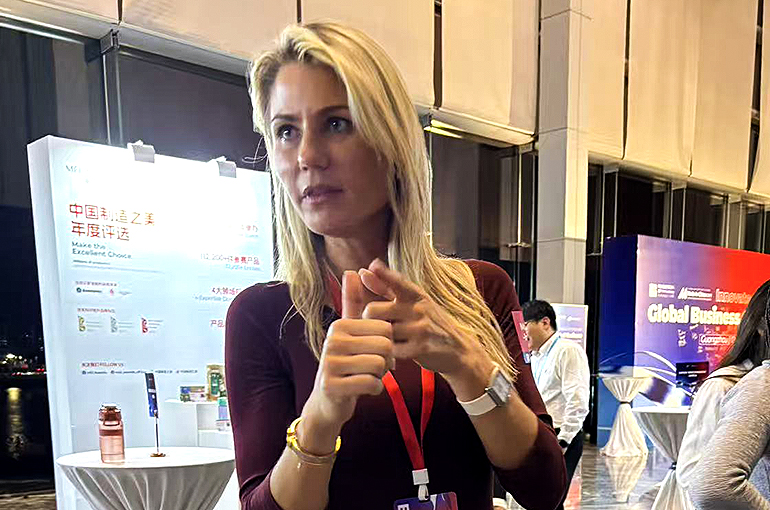Select Language:
During the autumn session of the Canton Fair, Belgian home goods buyer Benedicte Toumpsin hurried through the exhibition halls with a backpack, following a packed procurement schedule. On October 22, she shared her detailed itinerary with a reporter.
Toumpsin arrived in Guangzhou on October 15 for the first phase of the Canton Fair, then traveled to Hong Kong for the gift show before returning to Guangzhou on the 22nd. She plans to attend the second phase from October 23 to 27.
Between the second and third phases, she will make a quick trip to Tokyo before returning for the final phase. She intends to leave Guangzhou on November 6.
She sources a broad range of products for large-scale distribution across sectors such as food, construction, textiles, electronics, and household appliances. Chinese companies are very receptive to customized services and work diligently to meet client needs, she explained. Compared to other countries, China offers significantly more supplier options.
Her clients include major European supermarket chains like Super U, Carrefour, and E.Leclerc, with annual purchases exceeding one million USD from China. For these clients, price and product quality are key factors. To explore a wider array of products and supply options, she also visits the Hong Kong Mega Show and holds business meetings in Tokyo during the breaks between fair phases.
With supermarkets demanding more diverse product ranges and artificial intelligence transforming consumer goods, Toumpsin is on the lookout for new electronics and beauty items this year, such as small hair and skincare devices. She noted that products with CE certification are particularly popular in Europe, and imports of higher-value goods are steadily increasing.
One of the main reasons she returns to the Canton Fair annually is to reconnect with long-standing exhibitors. She also attends smaller fairs to discover promising small factories, which tend to value each order more than larger manufacturers that require a three-month notice period.
China’s industrial clusters and transportation infrastructure are additional advantages that attract her. In cities like Guangzhou, she can find hundreds of factories within the same industry, such as textiles. In Shenzhen, she explores other specialized sectors. Traveling in southern China is convenient, with Guangzhou and Hong Kong being easily accessible.
Toumpsin believes the global competitiveness of Chinese products largely hinges on technological innovation. She recalled working with Hisense a decade ago when the brand was relatively unknown in Europe. Since then, Hisense has continuously improved its technology and now holds a strong position in the European home appliance market.
She also appreciates the Chinese mindset of continuous improvement—striving to enhance quality and shed the reputation for cheap products.





